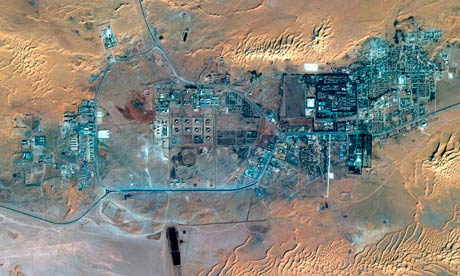25th January 2013 Kuala Lumpur, Malaysia
The Scourge of Terrorism Returns…

For one Malaysian family, 2013 has started in the worst possible way. Mr Chong Ngen Chung and many others, including from the UK, have become the latest victims in what our Prime Minister has rightly described as a ‘…generational struggle against an ideology which is an extreme distortion of the Islamic faith, and which holds that mass murder and terror are not only acceptable but necessary’.
The thoughts and prayers of everyone at the High Commission are with Mr Chong Ngen Chung’s family at this difficult time. We also hope that the whereabouts of Mr Tan Pin Wee can be established quickly so that his family may be able to move forward.
I want to add that I only have admiration for the Malaysian team in the Ministry of Foreign Affairs and in the Embassy in Algiers who have been working tirelessly on this crisis since it began.
The four-day siege at the In Amenas gas plant in Algeria has shown that the threat from Al-Qa’ida and those who support its warped ideology has not gone away. The threat has evolved – more decentralised, more franchised – but the extremists still seek to take advantage of areas with weak political institutions and where there are people with long-standing grievances just as they did in Afghanistan and Pakistan, and more recently in Somalia and Yemen.
I know from my own experiences in Iraq and Uganda the impact that extremist ideology can have on a vulnerable population. In Iraq, Saddam Hussein’s brutal regime reigned with an iron fist over the Sunni, Shia’a and Kurdish population. The Al‑Qa’ida affiliate which filled the political and security vacuum after his defeat sought to impose its extremist ideology through a poisonous concoction of criminality, propaganda and terror.
In Uganda, the government’s war against the Lord’s Resistance Army, who wish to create a theocratic state based on the Ten Commandments, has raged for over 25 years. In that time, Joseph Kony’s militia has been responsible for the deaths of thousands, the recruitment of over 60,000 child soldiers, and the displacement of almost 2 million people from across Uganda, DR Congo, South Sudan and the Central African Republic.
These two examples come from polar ends of the religious spectrum but show in equal measure the difficulties that governments and communities face in defeating extremism in its various guises.
I agree with our Prime Minister that the evolving terrorist threat requires an international response which tackles the security environment; addresses people’s political grievances; and combats the propagation of extremist ideology.
People will have their own opinions on the first of these; but there can be little debate on the importance of elected, accountable governments who work together to prevent the extremists from stealing the centre ground.
And that is why Prime Minister Najib’s initiative of a Global Movement of Moderates resonated with people around the world. Prime Minister Najib said in the UN in September 2010 that ‘… The real issue is not between Muslims and non-Muslims but between the moderates and extremists of all religions, be it Islam, Christianity or Judaism. Across all religions we have inadvertently allowed the ugly voices of the periphery to drown out the many voices of reason and common sense…We must, and I repeat, we must urgently reclaim the centre and the moral high ground that has been usurped from us. We must choose moderation over extremism. We must choose negotiations over confrontation. We must choose to work together and not against each other. And we must give this effort utmost priority for time is not on our side.’
I am really pleased that that our Prime Minister is going to be using the UK’s Presidency of the G8 this year to ensure that tackling terrorism is at the top of the agenda. I hope that by working together with countries like Malaysia, we can minimise the number of families around the world who have to deal with such heartbreaking news.